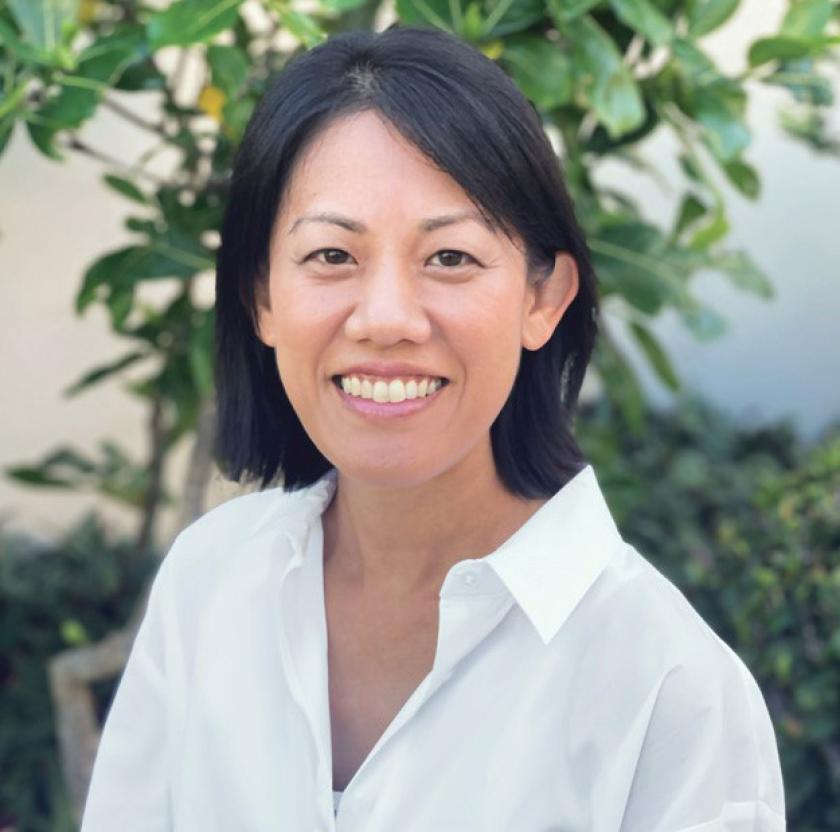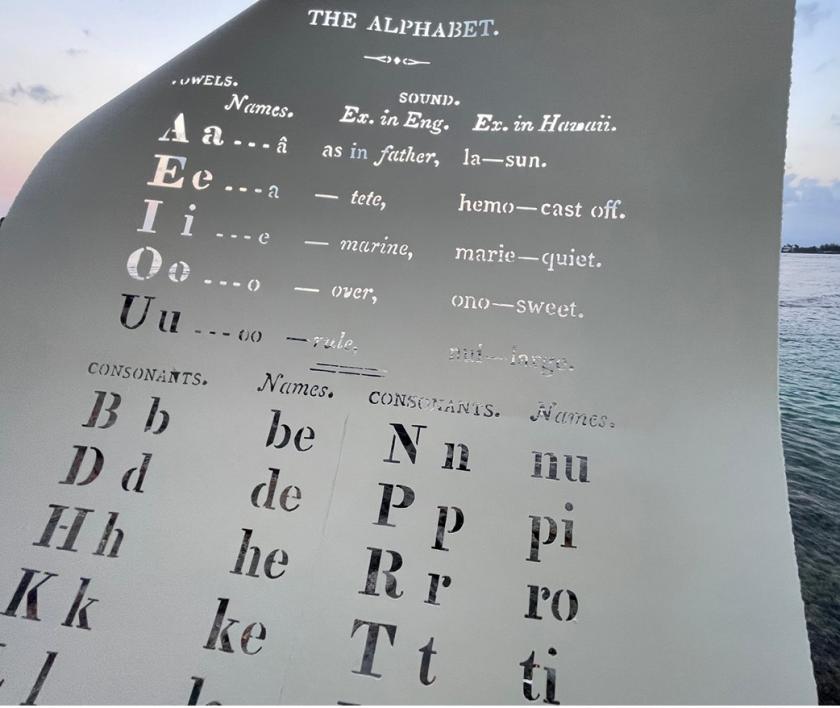
Jill Misawa Axelson, a student in the MSLIS online (Leep) program, has been awarded a grant from the Caxton Club, a not-for-profit organization devoted to the study and promotion of the book arts. The grant will support her project, "Bookmaking as bibliographic study: an inquiry into the first printing of the Hawaiian Alphabet," which was a part of her final assignment from Associate Professor Bonnie Mak's History of the Book (IS 583) course she took last fall.
Axelson is creating a portfolio of typographic specimens and new book versions of "The Alphabet," a Hawaiian language reading primer first printed in 1822. Her project aims to show how "visual and physical forms influence and create meaning" as well as reveal the bibliography and history of the book. Axelson became interested in this book through her volunteer work at the Hawaii State Archives, where "The Alphabet" is part of the Kahn Collection.
"This book serves as a humbling pathway through which I am learning more about the history of Hawai'i and the social and cultural landscape in which 'The Alphabet' came into being; the challenges encountered in the orthographic process of 'Ōlelo Hawai'i (the Hawaiian language); the relationship between Kanaka Maoli (Native Hawaiian people) and missionaries, both who participated in this book; unique printing needs; and the proliferation of handwritten and printed texts in 'Ōlelo Hawai'i that emerged from this time," she said.

Axelson, who holds a BFA in graphic design from the University of Illinois Urbana-Champaign, has worked as a professional graphic designer for over twenty years. She enrolled in the MSLIS program to discover how she can contribute to improved organization, navigation, and communication in an information-heavy world.
"My graphic design work is a research/writing/design process that aims to understand the purpose, context, and essence of each communication need. I create visual forms which endeavor to enhance and facilitate the communication of information or story in an effective, meaningful, and beautiful manner," said Axelson.
In the History of the Book course, the class examined the history of books from various viewpoints and learned about the creation, production, distribution, and reception of books. This experience served as "an inspiring portal" for Axelson, especially given her background in graphic design.
"My work up until now has focused on the design of various textual documents and books. The History of the Book course has allowed me to see the very items that I have been involved in making from a new, bibliographic perspective. As I research 'The Alphabet,' I am reminded of the layers of cultural evidence we embed into these content-bearing forms as we create them," she said.
At the iSchool, Axelson is exploring her interests in archives and rare books and forming new interests in bibliography and metadata.
"I'm just starting the MSLIS program with very little experience in the LIS field, so there is still much for me to learn," she said. "I'm excited to see what traditional LIS or hybrid career paths may emerge that might include my passion for the relationship between information and form."
Editor's Note: Axelson published an essay about her project, "Bookmaking as a Means of Bibliographic Study," in the July/August 2024 issue of Caxtonian, the journal of the Caxton Club.